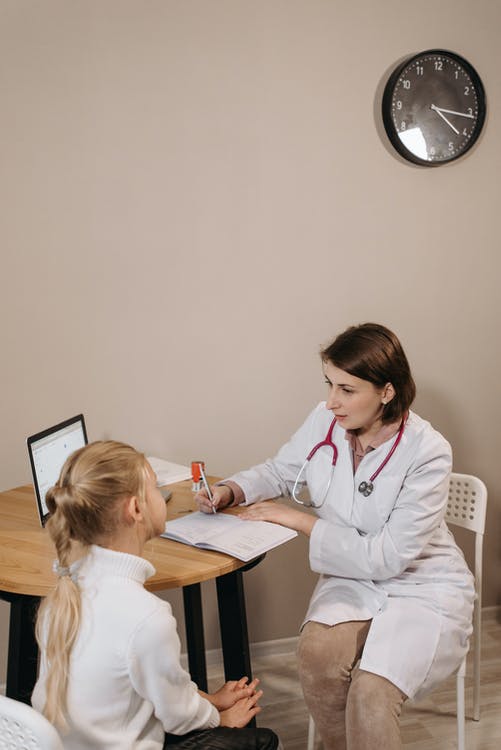37% of children under 17 in the U.S. have at least one health condition, a report by the Children’s Health Fund reveals. During the toddler years, your tot may experience a host of common health issues like colds, ear infections, asthma, and other minor emergencies. Regular well-child checkups will occur periodically at 12, 15, 18, and 24 months. These checkups are essential for building a foundation of good health that encourages and supports your toddler’s growth and development.
What to expect during your toddler’s checkup
Your toddler’s well-child checkups during this year will be similar to their previous ones. However, as your toddler grows and develops, discussions with your doctor about their habits and behavior typically become increasingly in-depth. The checkups will include a physical exam along with measurements (weight, height, and head circumference) to chart your toddler’s growth and assess their progress. Your toddler’s development will also be discussed. Your doctor may ask if they’re beginning to walk, speak, scribble, and follow straightforward directions. The topic of eating habits will also be raised. Is your toddler eating a varied diet, self-feeding (either with fingers or a spoon), weaning, or using a sippy cup? In general, babies should transition from bottle to sippy cup between 12 and 18 months. Always voice your questions and concerns, as well as keep written notes of instructions for special care that may be provided by your doctor.
Tracking developmental milestones
Although every child is different, developmental milestones can help gauge how your toddler is progressing. By 18 months, most toddlers should be able to walk on their own and speak a dozen or more words. And, by two years old, your toddler should be able to form two-word sentences, follow simple instructions, imitate actions, and push and pull toys or other objects. During your toddler’s 18-month checkup, a brief test will be used to check for developmental delays or autism, which usually appears within the first three years of life. An eye test may also be given to check for any vision problems, which can in turn lead to a range of developmental problems. Children typically are unable to discern or communicate problems with their eyesight, meaning eye tests are needed to catch any problems early on. Talk to your doctor about any concerns regarding your child’s development.
Call your doctor if you’re concerned
If you have any non-urgent questions or concerns about your child’s health outside of the routine checkups, call your doctor’s office for advice. Some doctors answer questions on minor illnesses, medications, and behavioural issues during set phone-in times, while others may use email for these types of questions. If, however, your toddler is sick, feverish, is vomiting, has diarrhea, won’t eat or drink, or has problems sleeping, call your doctor’s office right away.
Regular health checkups are essential for all infants. By identifying health problems early, effective treatment can be given to better support your toddler’s health and development.

